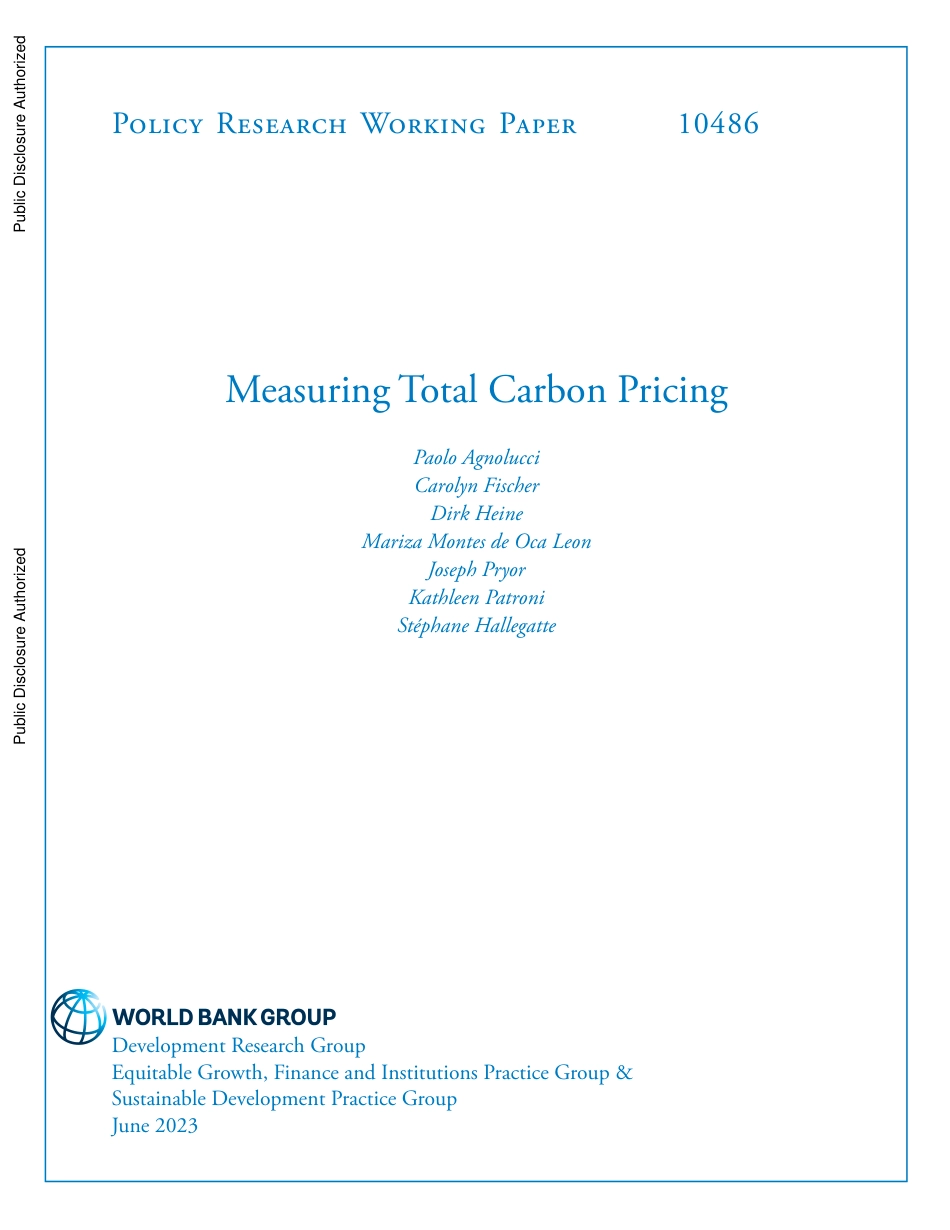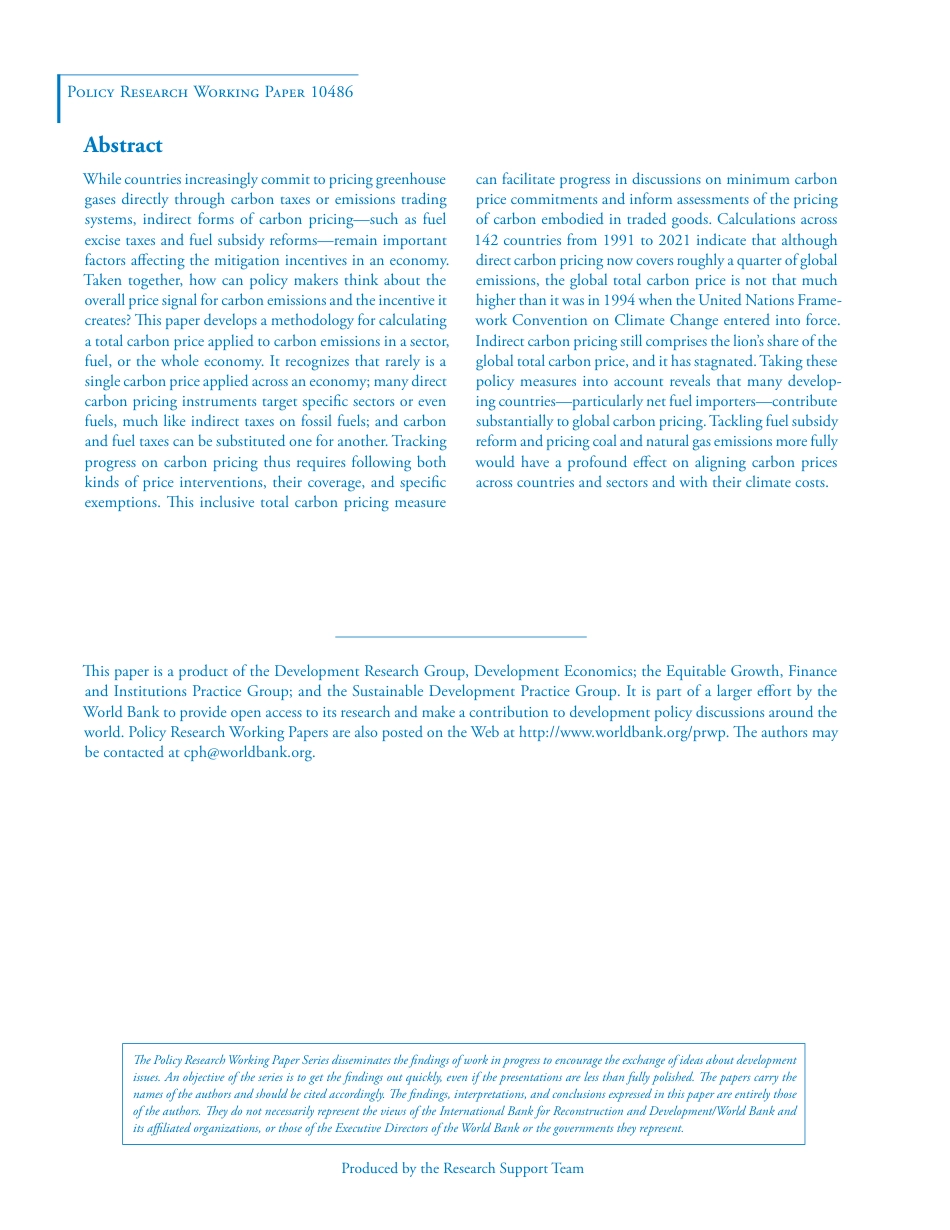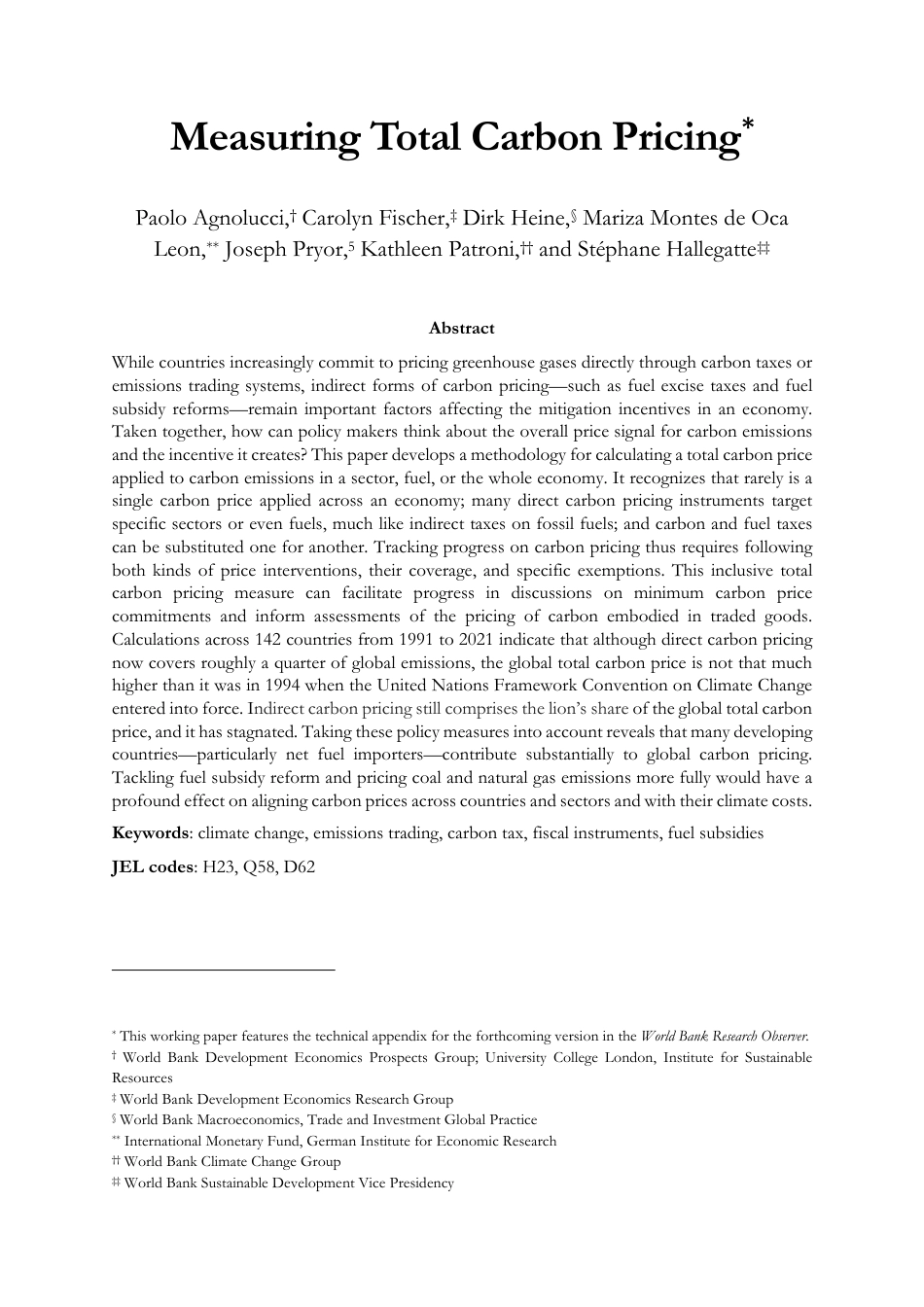Policy Research Working Paper10486Measuring Total Carbon PricingPaolo AgnolucciCarolyn FischerDirk HeineMariza Montes de Oca LeonJoseph PryorKathleen PatroniStéphane Hallegatte Development Research GroupEquitable Growth, Finance and Institutions Practice Group &Sustainable Development Practice GroupJune 2023 Public Disclosure AuthorizedPublic Disclosure AuthorizedPublic Disclosure AuthorizedPublic Disclosure AuthorizedProduced by the Research Support TeamAbstractThe Policy Research Working Paper Series disseminates the findings of work in progress to encourage the exchange of ideas about development issues. An objective of the series is to get the findings out quickly, even if the presentations are less than fully polished. The papers carry the names of the authors and should be cited accordingly. The findings, interpretations, and conclusions expressed in this paper are entirely those of the authors. They do not necessarily represent the views of the International Bank for Reconstruction and Development/World Bank and its affiliated organizations, or those of the Executive Directors of the World Bank or the governments they represent.Policy Research Working Paper 10486While countries increasingly commit to pricing greenhouse gases directly through carbon taxes or emissions trading systems, indirect forms of carbon pricing—such as fuel excise taxes and fuel subsidy reforms—remain important factors affecting the mitigation incentives in an economy. Taken together, how can policy makers think about the overall price signal for carbon emissions and the incentive it creates? This paper develops a methodology for calculating a total carbon price applied to carbon emissions in a sector, fuel, or the whole economy. It recognizes that ...



